Indigenous Governance Database
IGD Database Search
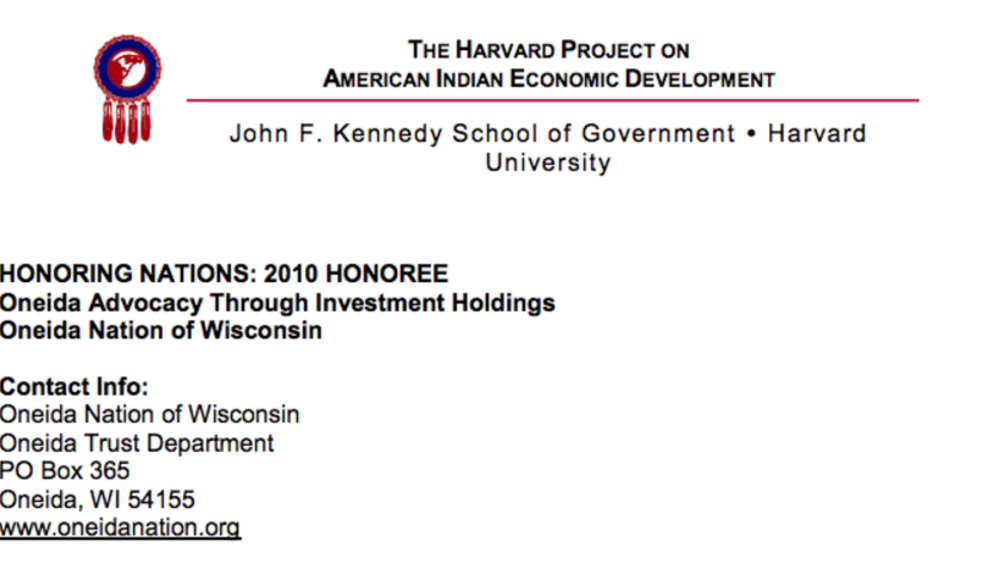
Oneida Advocacy Through Investment Holdings
Thirty years ago, most Native nations in the U.S. had few financial resources available for investment. With the passage of the Indian Self-Determination and Education Assistance Act (Public Law 93-638) in 1975, many tribes began to reclaim the governance of their nations – and with such assertions…
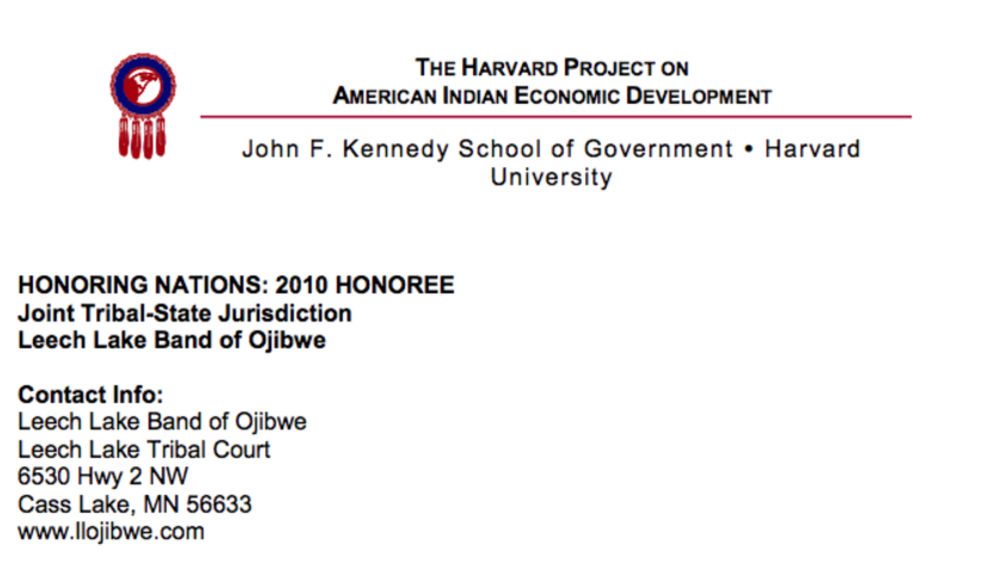
Leech Lake Joint Tribal-State Jurisdiction
Across Indian Country tribes are strengthening and better defining their governments in order to meet the unique needs of their communities. As Native nations work to expand their sovereign powers, tribal justice departments can play a critical role in achieving those goals. In the early 2000s, the…
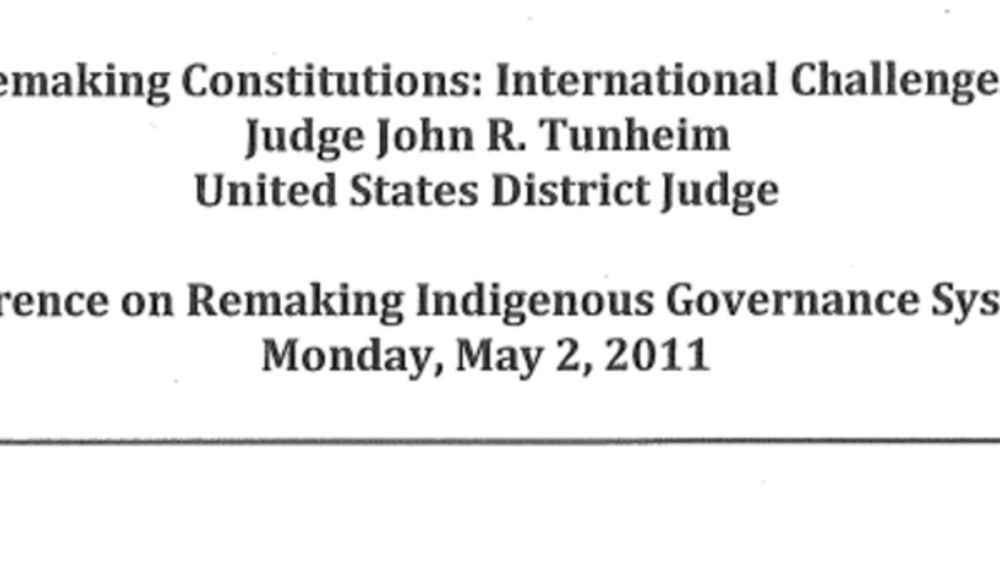
Remaking Constitutions: International Challenges
U.S. District Court Judge John R. Tunheim, whose work in Kosovo helped the United Nations re-establish and improve Kosovo's legal system and ultimately restructure its entire judiciary, discusses his observations as the principal outside advisor to the process that developed the Kosovo Constitution…
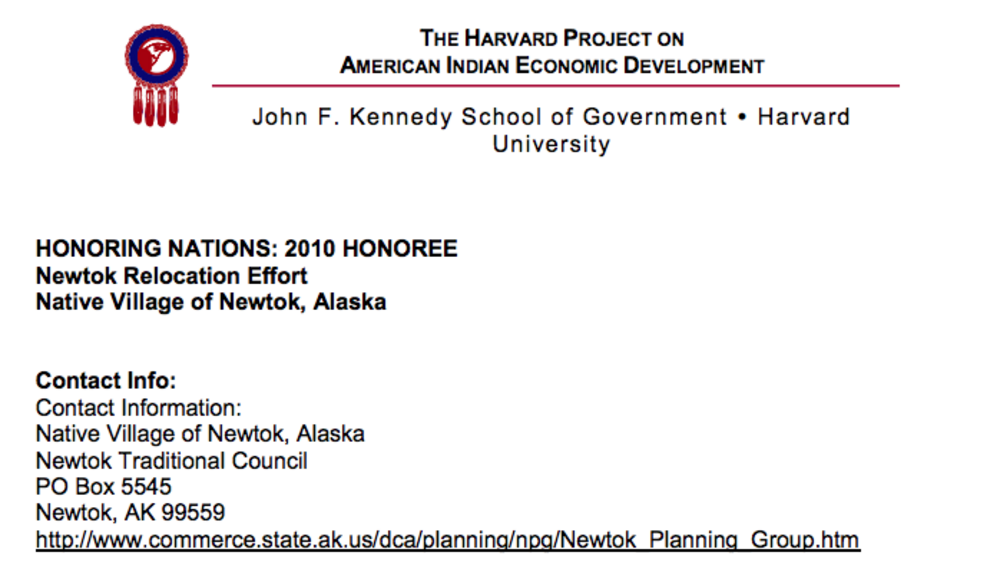
Newtok Relocation Effort
Scientists and politicians spend hours debating the facts of climate change, but in many places damaging changes to the local environment are already a reality. In the past decade, more and more human settlements have been threatened by catastrophic flooding, wildfires, or drought caused by…
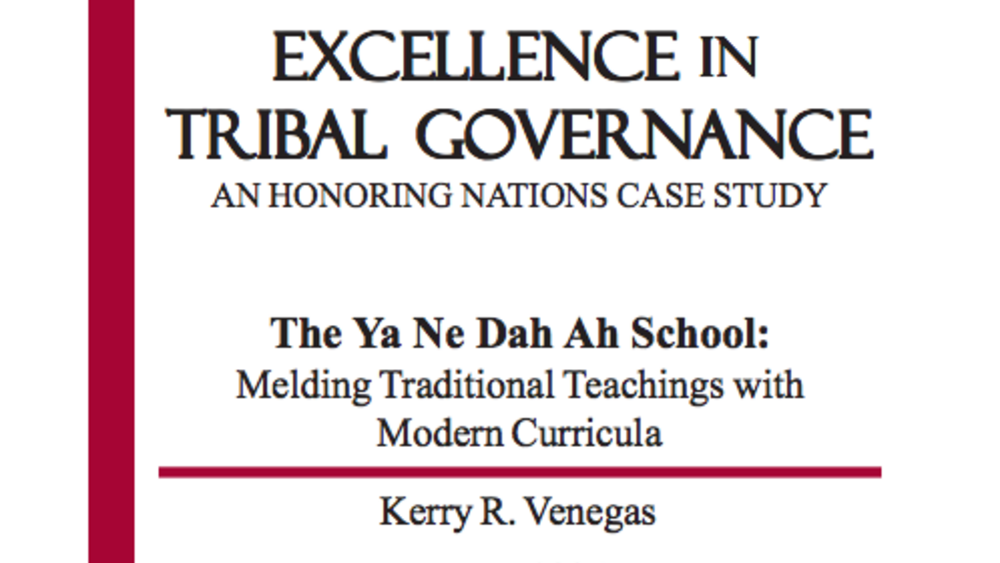
The Ya Ne Dah Ah School (Chickaloon): Melding Traditional Teachings with Modern Curricula
For many generations, education in American Indian/Alaskan Native (AI/AN) communities has been controlled by sources external to the communities and the people themselves. Large bureaucratic agencies, such as the Bureau of Indian Affairs (BIA) or public school systems overseen…
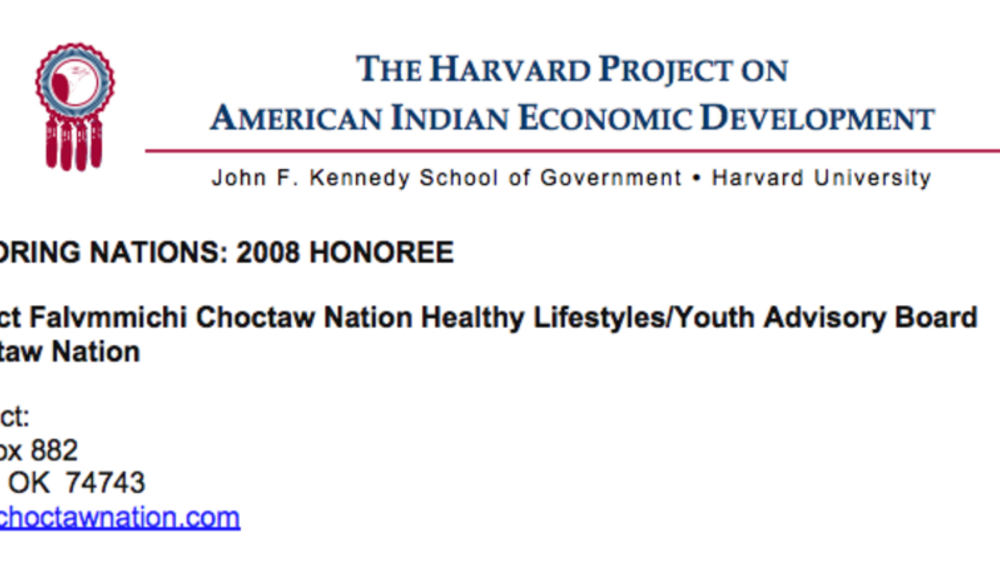
Project Falvmmichi (Choctaw Nation of Oklahoma)
"It is not cool to hit or be hit" is the straightforward motto of Project Falvmmichi, a school-based program of the Choctaw Nation designed to tackle the problem of domestic violence. The program teaches elementary school students positive ways to deal with anger and resolve conflicts. Today, more…
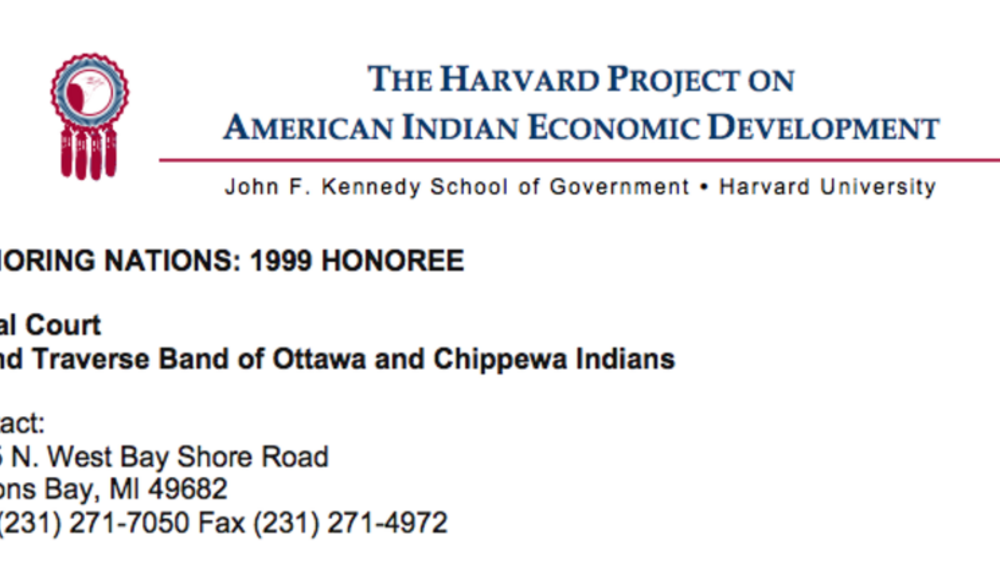
Grand Traverse Band Tribal Court
Constitutionally separated from the political influences of government, the Tribal Court hears more than 500 cases per year, and utilizes "peacemaking" to mediate in cases in which dispute resolution is preferred to an adversarial approach. The Court adjudicates on such issues as child abuse,…
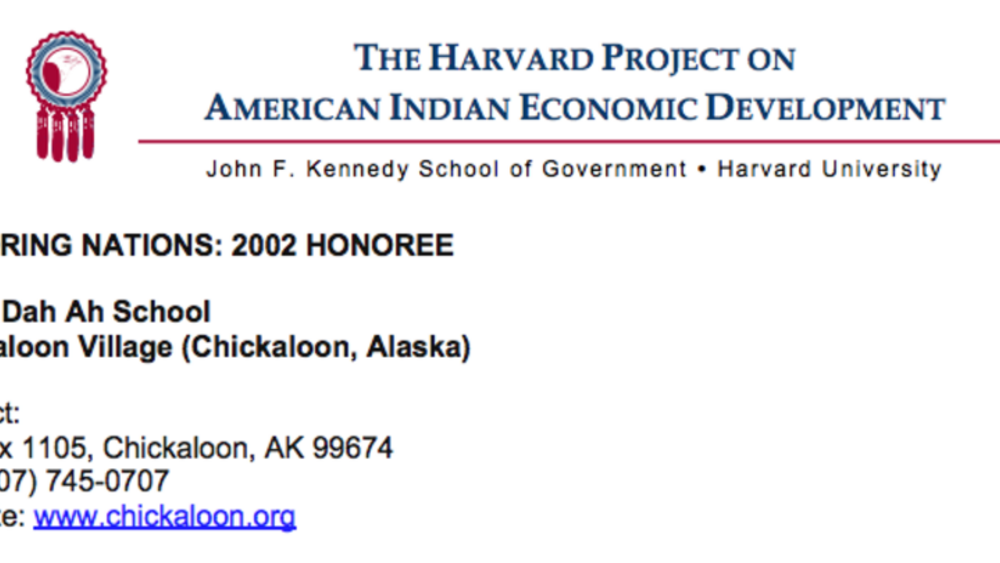
Chickaloon Village: Ya Ne Dah Ah School
Dedicated to giving community youth the skills necessary for functioning in a modern world while retaining and facilitating traditional knowledge and practices, the Ya Ne Dah Ah is Alaska’s only tribally owned and operated full-time primary school and day care facility. Located in a one-room…
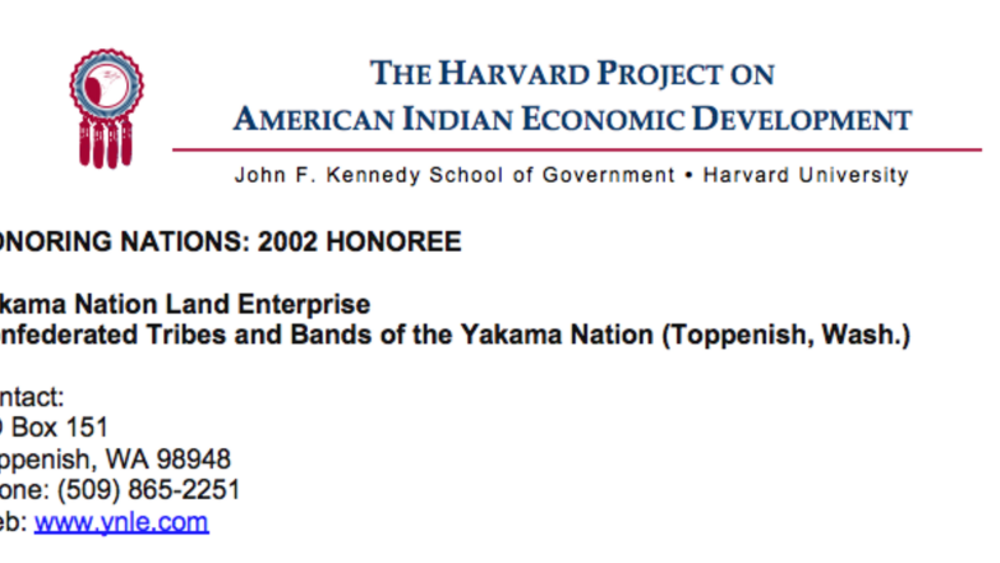
Yakama Nation Land Enterprise
In an effort to consolidate, regulate, and control Indian land holdings, the financially self-sustaining Yakama Nation Land Enterprise has successfully acquired more than 90% of all the fee lands within the Nation’s closed area — lands which were previously highly "checker-boarded." The Enterprise’…
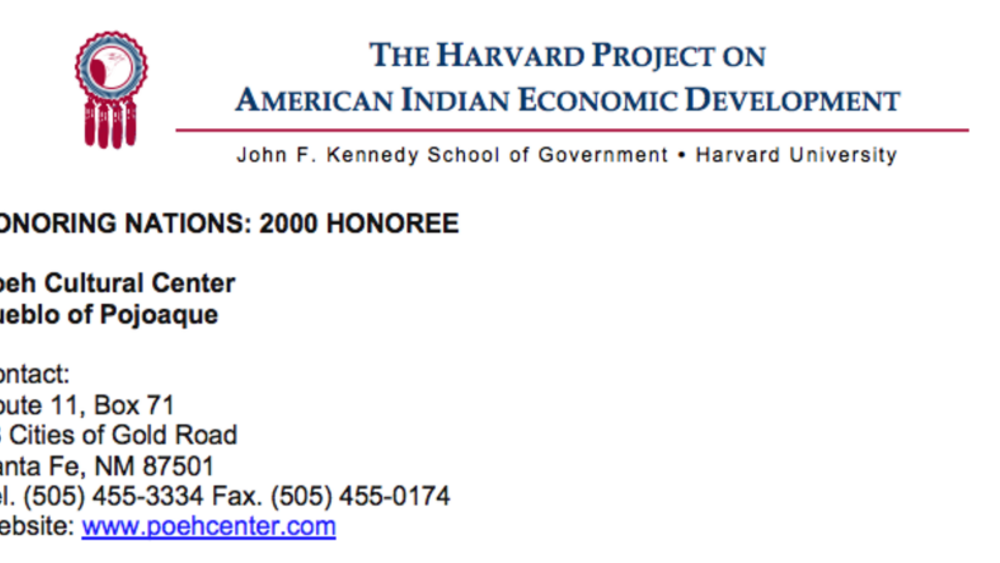
Poeh Center: Sustaining and Constructing Legacies (Pojoaque Pueblo)
Faced with the common challenge of raising funds for construction of a cultural center and museum, the Tribal Council created the Pojoaque Pueblo Construction Services Corporation in 1993. The Corporation’s chartering mandate was to generate revenues for cultural activities and to oversee the…
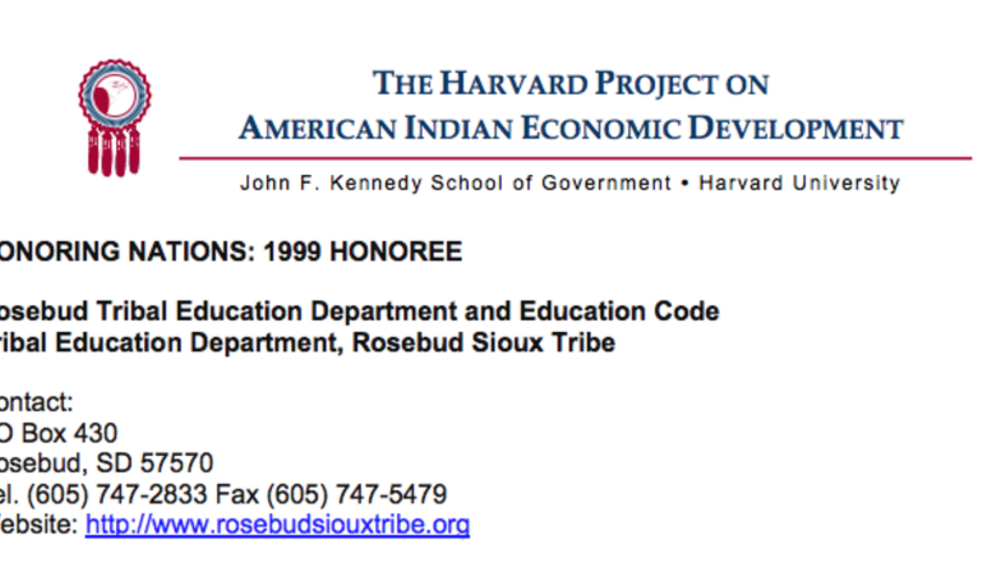
Rosebud Sioux Tribal Education Department and Code
Responding to disproportionately low academic attendance, achievement, and attainment levels, the Tribe created an education department (TED) in 1990 and developed a Code that regulates and coordinates various aspects of the tribal schools, public schools, and federally-funded Indian education…
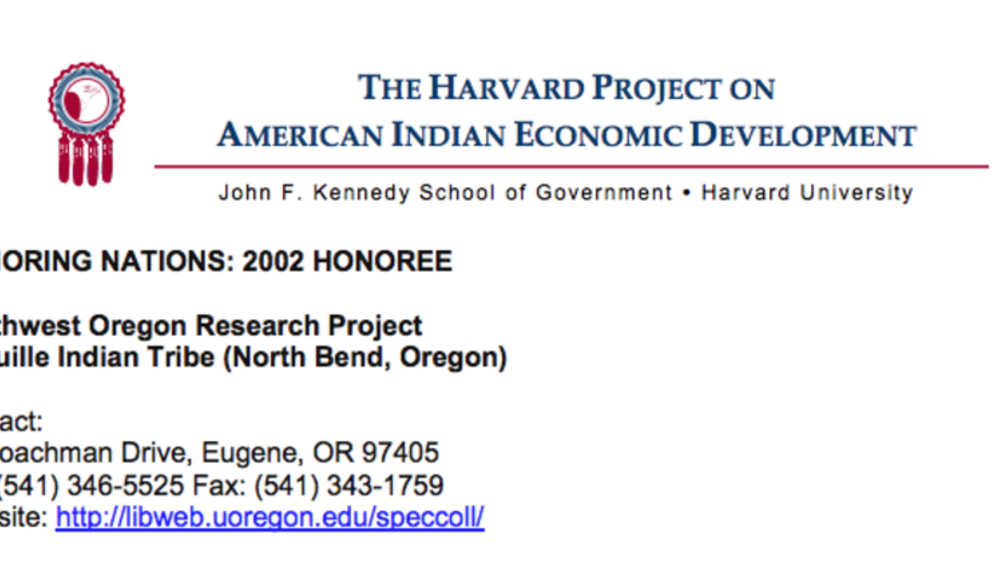
Coquille: Southwest Oregon Research Project (SWORP)
Driven by the belief that possessing historical documents and archival collections is essential for cultural self-determination, the Coquille Indian Tribe partnered with the University of Oregon and the Smithsonian Institution to launch the Southwest Oregon Research Project (SWORP) in 1995. Through…
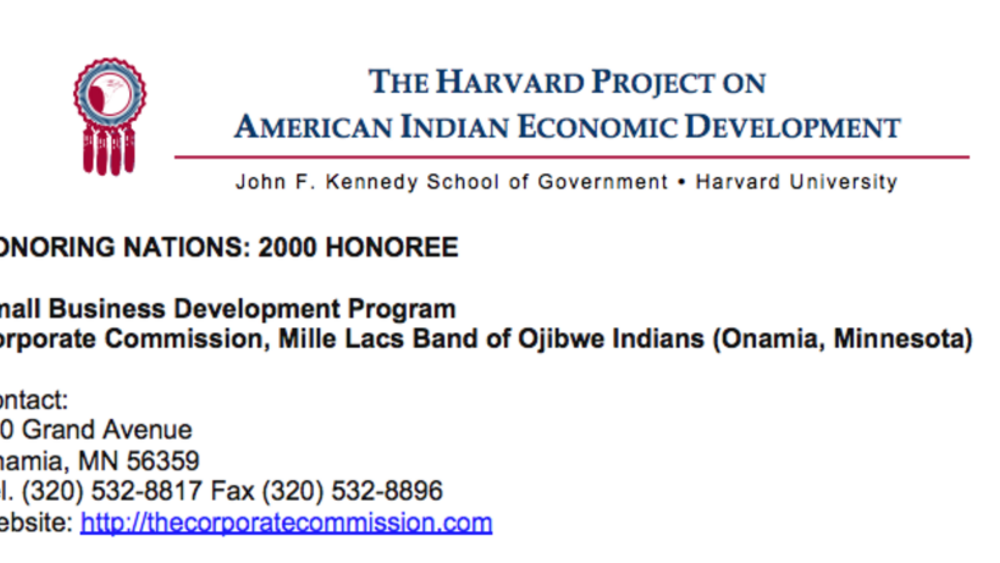
Mille Lacs' Small Business Development Program
The Small Business Development Program assists Band members in developing the private sector economy by providing low-interest loans up to $75,000 to businesses that are at least 60 percent owned and operated by Band members located on or near the Reservation. The Program offers both "micro" loans…
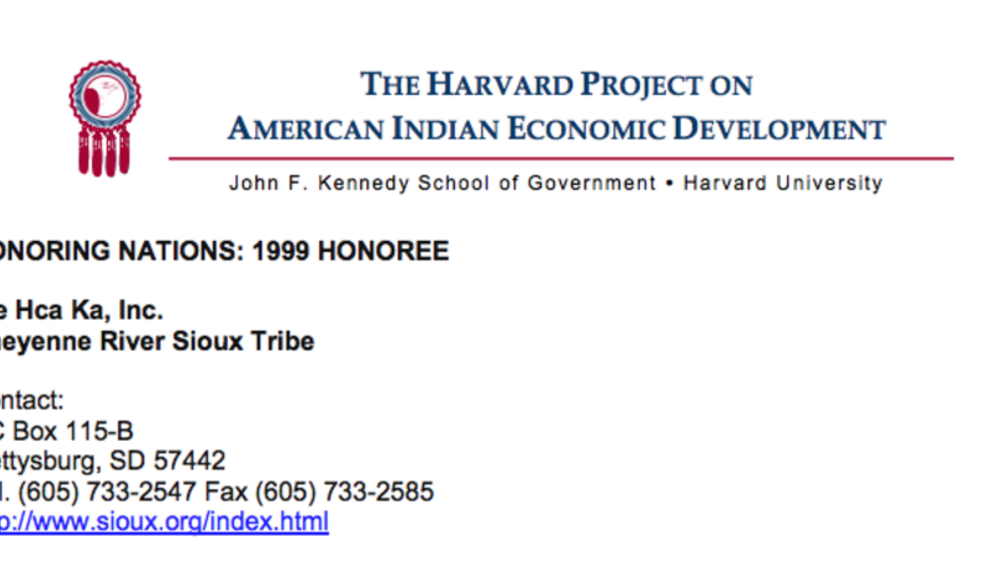
Pte Hca Ka, Inc. (Cheyenne River Sioux Tribe)
This tribally chartered corporation developed a culturally compatible management system for reestablishing buffalo as a focal point for socio-economic development, community cohesion, and self-determination. Pte Hca Ka, Inc. operates a mobile meat processing facility, and is currently seeking…
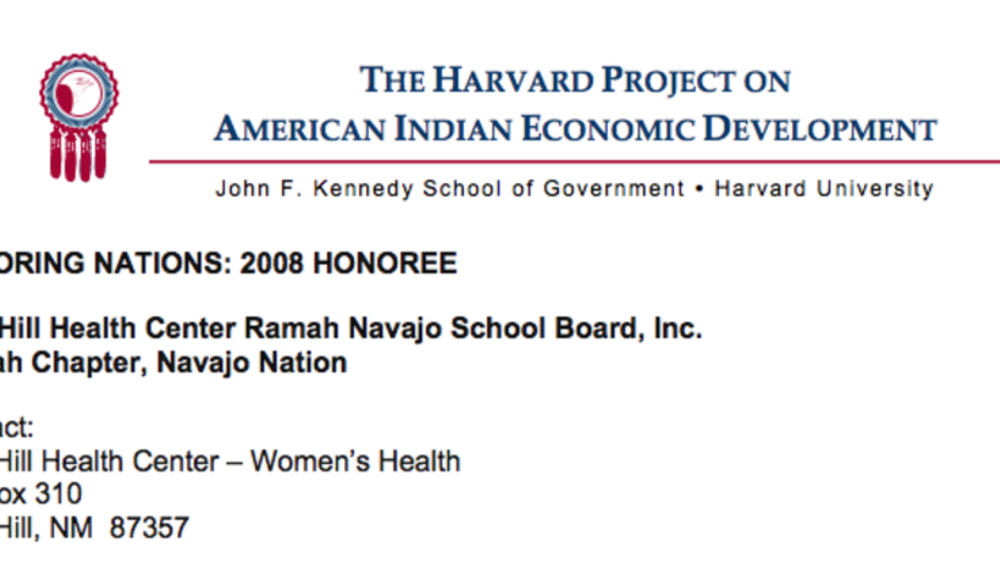
Navajo's Pine Hill Health Center
In the Ramah Chapter of the Navajo Nation–as in many parts of Indian Country–late detection of breast cancer leads to disproportionally high rates of breast cancer mortality. Ramah Navajo’s Pine Hill Health Center devised a creative response: it launched a series of "Mammo Days," educational and…
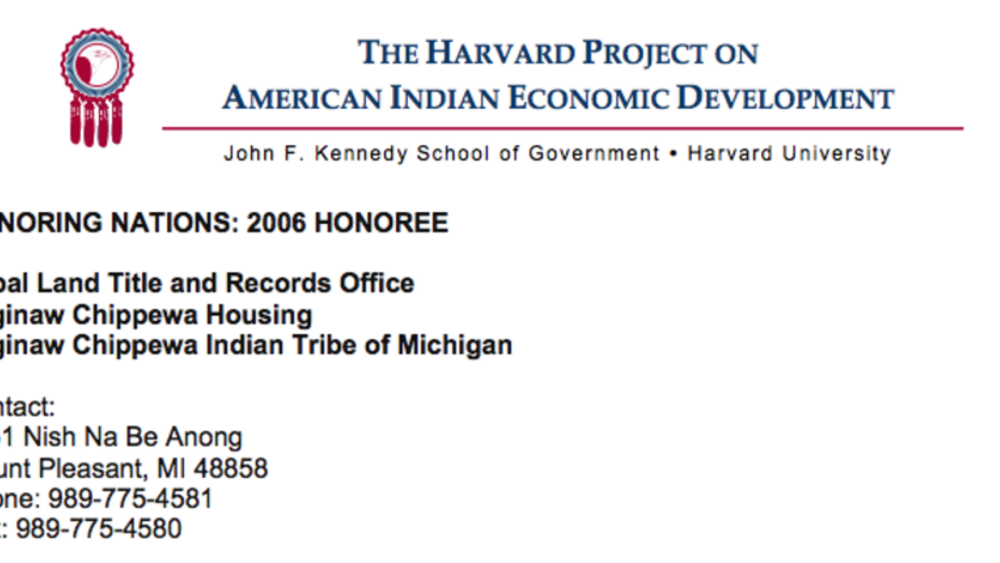
Saginaw Chippewa Tribal Land Title and Records Office
With the ultimate goal of seeing a time when Native people and nations once again own and manage the land within the boundaries of every reservation as well as those lands that are culturally important to them beyond reservations, the Tribal Land Title and Records Office keeps all records and…
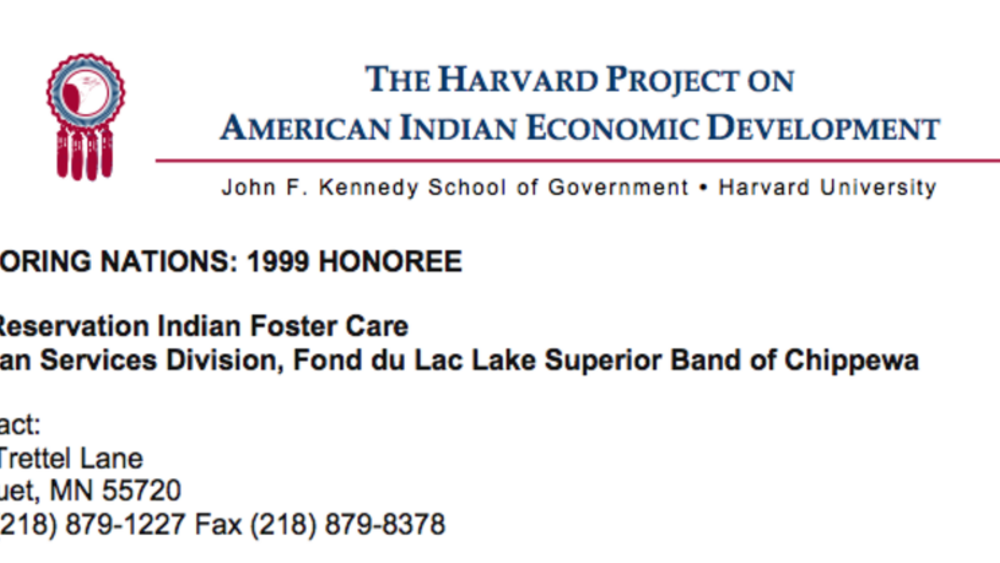
Fond du Lac Off-Reservation Indian Foster Care
By creatively reacting to state laws regarding foster home licensing, the Band established a foster care agency that dramatically reduced the number of Indian children in non-Indian foster care while simultaneously increasing the number of Indian children in Indian foster care. The agency has…
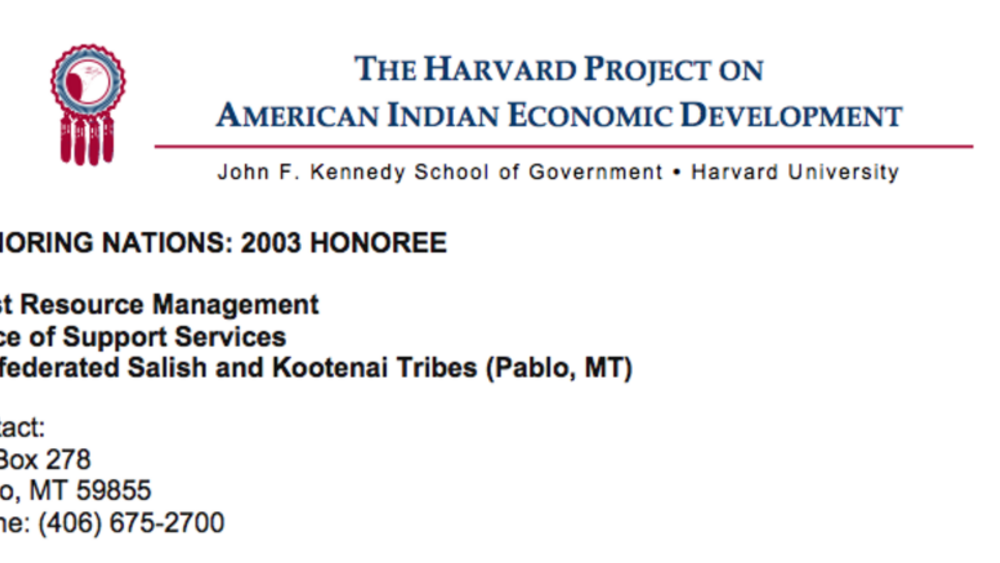
Trust Resource Management (Salish and Kootenai)
For more than three decades, the Confederated Salish and Kootenai Tribes (CSKT) have been building capable governing institutions and taking over management of resources and programs previously managed by outsiders. Recognizing that self-management both allows the tribal government to determine its…
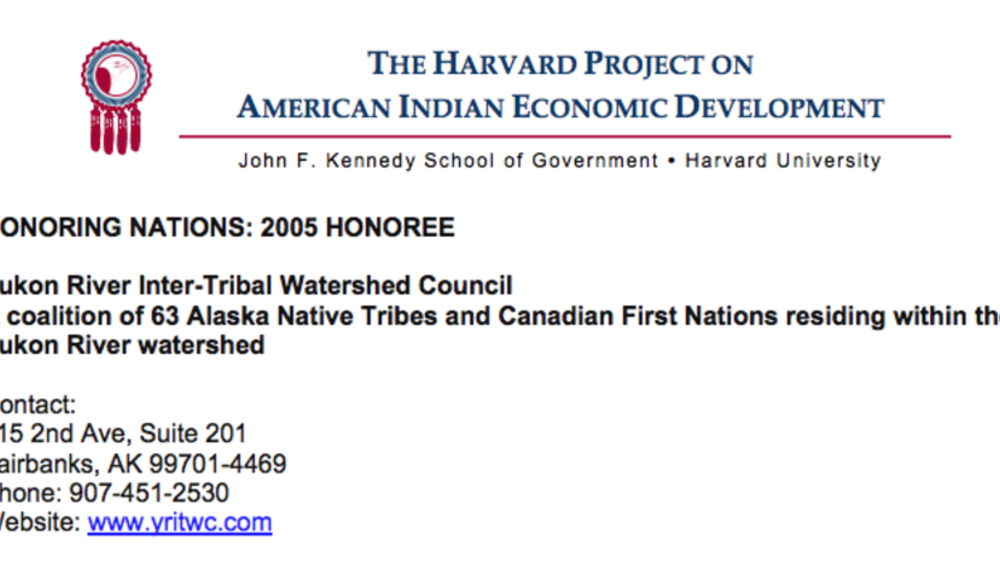
Yukon River Inter-Tribal Watershed Council
The Yukon River runs for 2,300 miles across the northwestern corner of North America. Many generations of Native people have drawn on its waters for food, drink, and other necessities. Recent development and changes in land use have affected the quality of Yukon River water. In 1997, chiefs and…
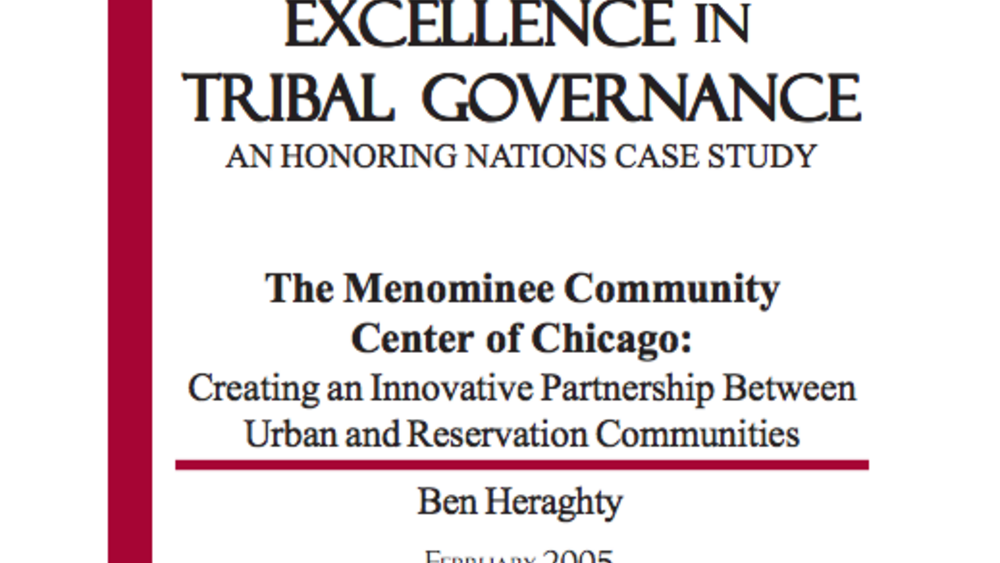
The Menominee Community Center of Chicago: Creating an Innovative Partnership Between Urban and Reservation Communities
Over half of the Menominee Indian Tribe of Wisconsin lives off-reservation. Regrettably, the ties between the Menominee’s reservation and urban populations, like those between the split populations of so many Indian nations, have been tenuous for decades. In 1994, a group…
Pagination
- First page
- …
- 23
- 24
- 25
- …
- Last page
